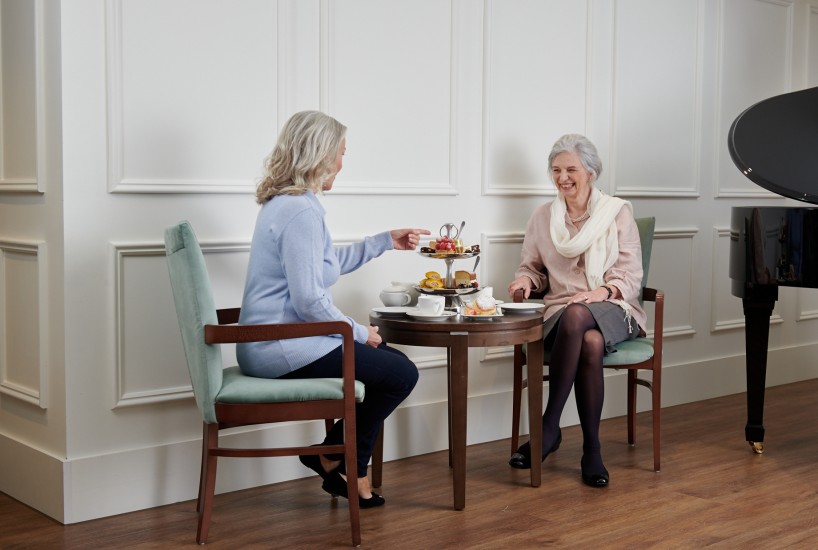Dementia’ is an umbrella term that refers to symptoms such as memory loss, language difficulties and confusion. It occurs when certain conditions affect the brain and, while it’s not a natural part of the ageing process, the risk of developing dementia does increase with age. Sadly, dementia is progressive, but while people with dementia will gradually lose their independence, with the appropriate expert care in place they can continue to lead fulfilling lives.
The most prevalent forms of dementia include:
Alzheimer’s Disease
This is the most common cause of dementia. The condition is caused by proteins that build up in the brain, causing structures called ‘plaques’ and ‘tangles’. These disrupt connections between nerve cells, eventually causing them to die. Main symptoms include memory loss, difficulty learning new skills or retaining new information, repetition, confusion, irritability and depression.


Vascular Dementia
Affecting 150,000 people in the UK, it is caused by reduced blood flow to the brain, which occurs because of stroke, or the hardening and narrowing of arteries (atherosclerosis). Vascular dementia is most prevalent in smokers or those with high blood pressure, Type 2 diabetes, obesity or heart problems. Symptoms include confusion, memory loss, slow thought patterns, impaired concentration, hallucinations, mood swings, depression and anxiety.
Mixed Dementia
Alzheimer’s Society estimates around 10 per cent of those with dementia have more than one type.


Dementia with Lewy Bodies
Estimated to affect around 10 per cent of those with dementia, Lewy bodies are lumps of protein that develop inside brain cells. It’s believed these proteins interfere with the chemical messengers in the brain that regulate memory, mood and the ability to learn. Symptoms include fluctuating attention, problems with perception, hallucination, difficulty with balance and movement, disrupted sleep and feelings of being persecuted.
Frontotemporal Dementia
Also known as ‘Pick’s disease’, this rare form of dementia occurs when the frontal and temporal lobes of the brain are damaged, due to shrinkage. It is often diagnosed in those aged between 45 and 65, with symptoms including inappropriate behaviour, lack of motivation, sweet food cravings, and difficulty with speech and recognition.

Our experienced, compassionate staff are specially trained in dementia and memory care, and are on hand to provide help and support. We can provide live-in care, with respite, short-term and long-term options, and day-care at home. Contact us to find out more about how we can help to provide appropriate care for your loved one.




